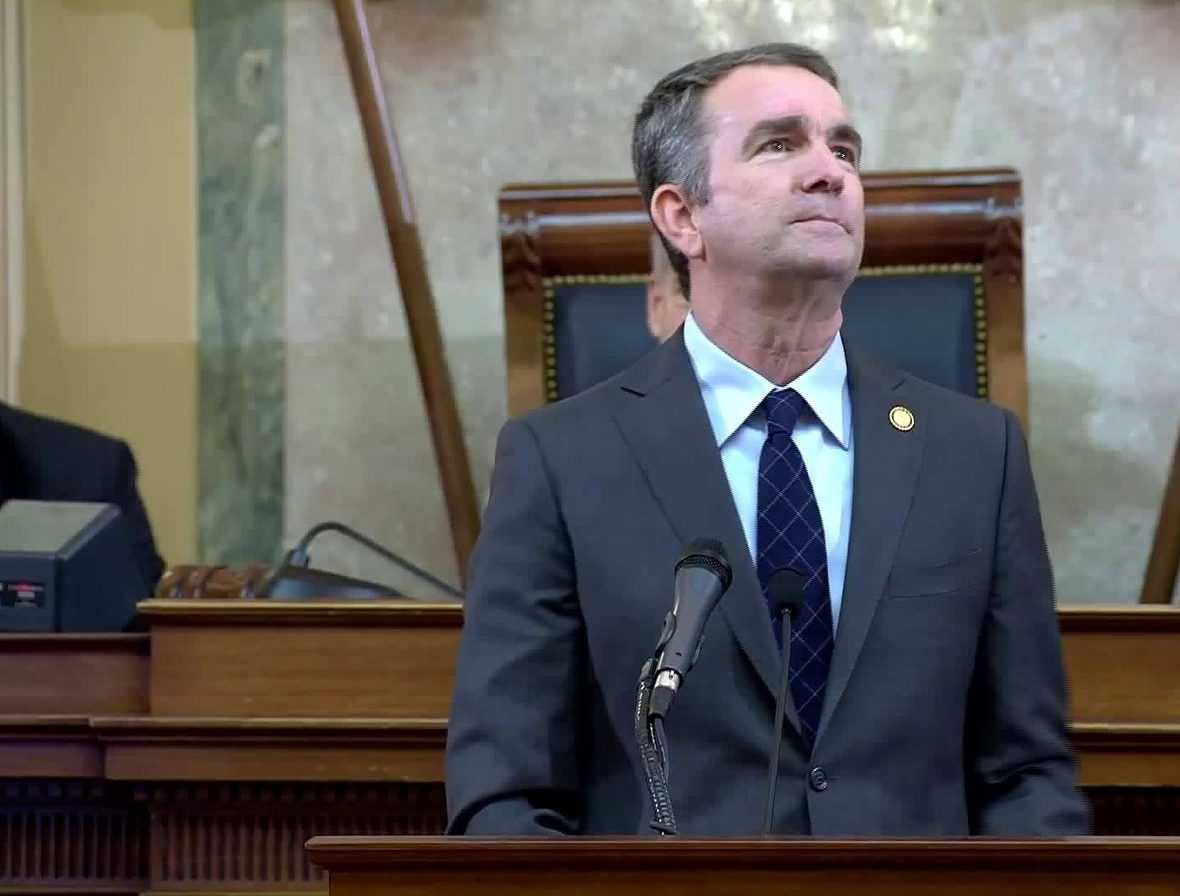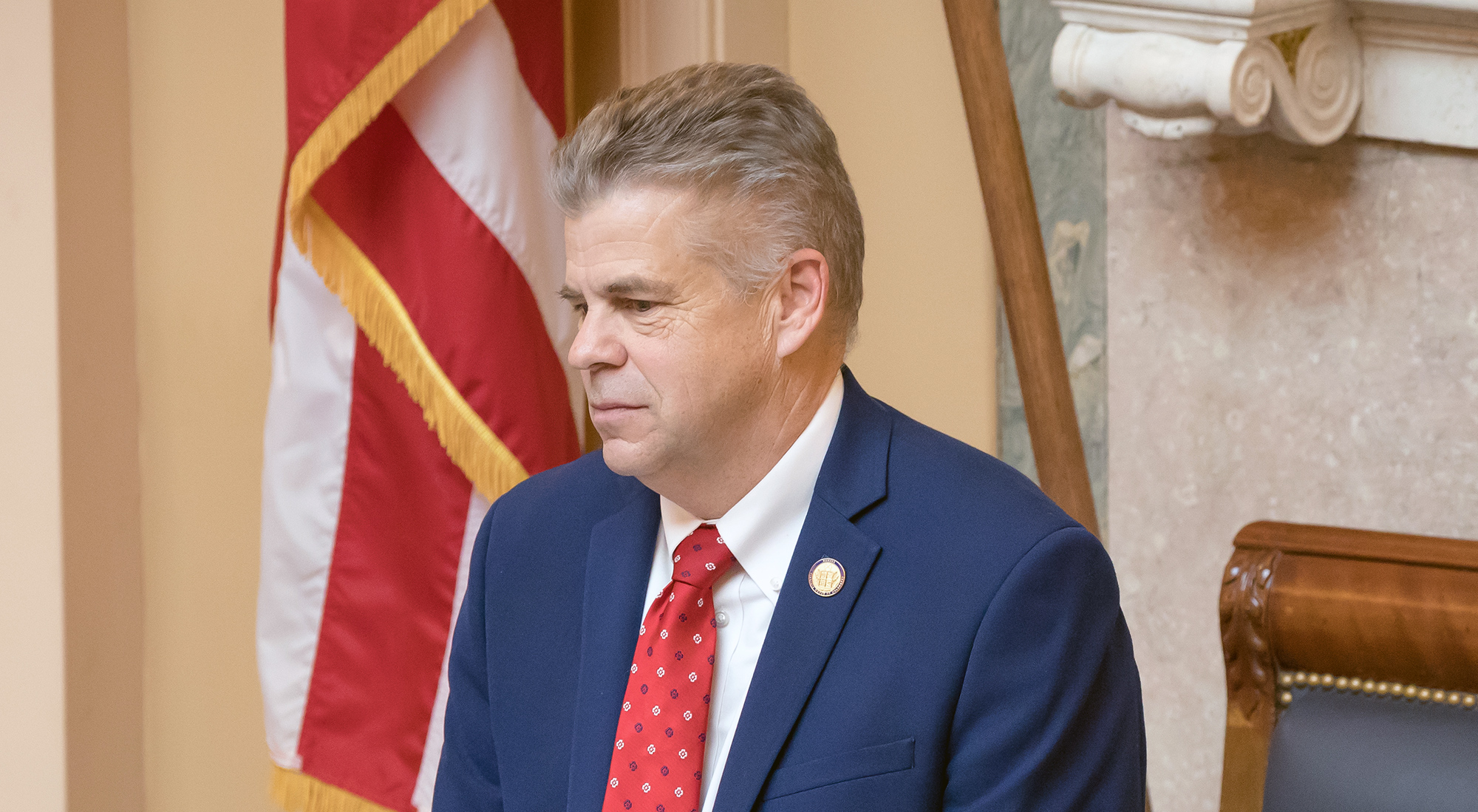With a rules fight looming in Virginia’s House of Delegates, one lawmaker took to the floor on Monday to push back against an effort which he called a “proxy fight for unrestricted access to abortion.”
Delegate Scott Garrett (R-Lynchburg), rose against a Friday effort championed by colleague Hala Ayala (D-Woodbridge) to change chamber rules and revive a failed measure hailed by abortion advocates to require taxpayer funding for unrestricted access to taxpayer funded abortion.
Ayala’s effort to suspend the rules and advance the Equal Rights Amendment (ERA) to the floor, following its repeated failures in committee, would constitute an unprecedented effort to discharge the committee system under which the chamber operates, targeted towards one specific measure.
“We already know, Mr. Speaker, that the 14th Amendment the United States Constitution applies the equal protection of the laws to all people regardless of sex,” said Garrett. “What could this additional amendment really be about, Mr. Speaker?”
“The next few days will give us the opportunity to answer that question by saying out loud what this has been about all along: a proxy fight on unrestricted access to abortion. I think we’re all well aware of the shock and outrage that emerged not only across the Commonwealth but across the country, after the details of House bill 2491 became widely known. That legislation, Mr. Speaker, erased all meaningful restrictions on late term abortion, allowing abortion up to the moment of birth for the most tenuous of reasons.”
Referencing HB2491, the controversial 40 week abortion bill filed by Delegate Kathy Tran (D-Springfield), which ultimately failed, Garrett warned that the provisions of the bill could be mandated by the courts if the ERA were to be enacted.
Garrett cited three court cases where state-level provisions similar to the ERA were used by courts to overturn abortion restrictions.
In a case out of Texas from 2001, Art. I, § 3a of the state’s constitution was used to overturn restrictions on taxpayer funding for abortion. Previously, Texas law limited state funded abortion services to cases involving rape, incest, or a threat to the life of the mother. Under this language, courts ruled that restriction, one supported by most Americans, to be invalid.
Garrett also cited a case from Connecticut, in which Art. I, § 20 of the state’s constitution was as the basis for ruling state restrictions on abortion invalid.
In a third case he referenced, from New Mexico, N.M. Right to Choose/NARAL, Abortion & Reprod. Health Servs., Planned Parenthood of the Rio Grande v. Johnson (126 N. M. 788), the Supreme Court of New Mexico ruled that the state constitution required taxpayer funding for elective abortion, on account of language nearly identical to the proposed ERA (Art. II, § 18).
“Based on the independent grounds provided by the Equal Rights Amendment to Article II, Section 18 of the New Mexico Constitution, we affirm the district court’s orders granting Plaintiffs’ motion for summary judgment, permanently enjoining the Department from enforcing its May 1995 revision of Rule 766, and awarding costs to Plaintiffs,” ruled the court.
These cases predate a ruling handed down in Alaska this week following a similar pattern.
“Brought by Planned Parenthood of the Great Northwest, the lawsuit argued that the regulations violated the equal protection clause of Alaska’s constitution by discriminating against women choosing to have an abortion,” reported Jurist.org, a legal research collaboration affiliated with the University of Pittsburgh.
“Under the contested law, abortions would only be covered under Medicaid though additional requirements. The 2013 regulation, 7 AAC 160.900(d)(30), required a physician to certify an abortion only for circumstances permitted under the Hyde Amendment or if deemed medically necessary. The Hyde Amendment only allows federal funding for an abortion when the mother’s life is endangered by a full-term pregnancy term or the pregnancy resulted from rape or incest.”
Ayala’s rules change effort comes on the heels of a Democratic push to loosen restrictions on abortion as a major plank of the party’s campaign efforts for the fall elections.
Abortion first became an issue in the 2019 campaign cycle when Democratic leaders, including Governor Ralph Northam, Lieutenant Governor Justin Fairfax, and Attorney General Mark Herring held a press conference with over a dozen lawmakers, announcing that Tran’s Repeal Act would be a “priority” on the campaign trail.
In that announcement, Northam and other Democrats looked forward to a Democratic majority in the House of Delegates and the Senate of Virginia which would pass the legislation and send it to his desk for approval.
“So when can’t change peoples minds, we need to change seats,” said Northam.
“We need a pro-choice majority in the General Assembly,” added Herring.
That event, held on January 17th, predated Tran’s now-infamous committee testimony by eleven days.
The Repeal Act enjoys strong support from Democratic lawmakers, having received the sponsorship of a majority of Democratic members in the General Assembly.
When introduced, 54% of them signed on as sponsors, though that number fell to 51% after Delegate Dawn Adams (D-Henrico) withdrew her sponsorship following the backlash, telling constituents in an email that she failed to read the bill.
Last Friday, the deadline for withdrawing sponsorship passed. 34 Democrats remained active sponsors of the failed legislation.
With abortion now a top issue for the fall, Ayala’s unprecedented push to bypass the House’s committee system through a rules change represents the last opportunity for Democrats to deliver a legislative victory for pro-abortion voters.
Republicans have pledged to fight the attempt, disagreeing both with the underlying policy and what they called an “affront” to the rules targeted at one specific legislative measure.
In closing, Garrett remarked that everyone in the chamber would support ratifying the Equal Rights Amendment were it not for the provision expanding taxpayer funded late term abortion.
“So in in closing, Mr. Speaker, let me be clear on one thing: if this amendment before us were just about equality, and its advocates could prove that it would not do exactly what the courts have already found it does, then I would be the first person to vote for it because I have a wife and a daughter, and I believe they deserve the same rights and respect that all people should receive,” he said. “And I believe you would not find a single dissenting vote in this house were that the case.”
“But Mr. Speaker, I wholeheartedly believe that this is not what this amendment is about.”
Garrett concluded by urging the measure’s defeat.









